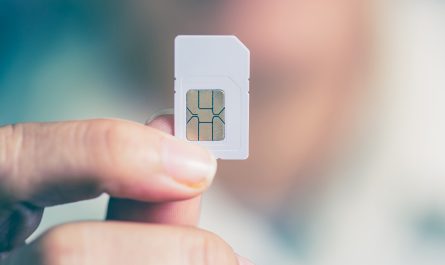Your SIM card holds quite a lot of confidential and personal information about you. If a hacker gets access to your SIM card, they can easily infiltrate your private texts, bank details, or phone calls. Even when the stakes are higher, people aren’t aware of the security risks involved with a SIM card. Therefore, we felt it was necessary to keep our users informed about ways to keep your SIM card safe and understand what threats lurk in the corner related to SIM cards in this technology-driven market. SIM cloning and SIM hijacking are just some examples.
Buy Airtel Prepaid with exciting benefits!
We will discuss the following pointers in the article. Feel free to jump to the section you wish to read about.
Let’s see what preemptive measures you can take to protect your SIM card(s).
How to keep your SIM cards safe?
The following pointers can help you to keep your SIM cards safe and secure:
-
-
- Use a strong PIN
- Keep SIM card details confidential
- Know more about Phishing scams
- Use Anti-Virus software
- Avoid Public Wi-Fi
- Check your mobile account regularly
- Report suspicious activities right away
-
Use a strong PIN
Always set a strong PIN code for your SIM card and never share it with anyone. A strong PIN code will make it harder for someone to gain access to your SIM card. A SIM card lock can be set from the settings app on your smartphone. The steps will vary for Android and Apple phones. You will need the default sim PIN given by your carrier to reset it. Remember, don’t enter the wrong sim PIN. It will lock your sim permanently.
Keep your SIM card details confidential
Do not share your SIM card details such as the ICCID (Integrated Circuit Card Identifier) or IMSI (International Mobile Subscriber Identity) number with anyone.
Don’t share your SIM cards with others
SIM cards are unique to each user, so don’t share your SIM cards with others, as this can compromise your personal information and security. Sharing of SIM cards can lead to sim cloning. If someone gets access to your physical SIM card, they can use a sim cloning tool or sim clone device to duplicate your sim and impersonate you. The duplicate sim can send text messages and even initiate phone calls. We will discuss sim cloning meaning and process further in the blog.
Be wary of phishing scams
Do not click on links or download attachments from unknown or suspicious sources, as they may contain malware that can compromise your SIM card security. Be educated about such scams to spot any suspicious activity immediately and take action.
Use anti-virus software
Install anti-virus software on your mobile phone to protect it from malware that can steal your SIM card details.
Avoid public Wi-Fi
Avoid using public Wi-Fi when accessing sensitive information such as your SIM card details, as public Wi-Fi networks can be easily compromised by hackers. Cybercriminals use phishing techniques with social engineering to threaten you or steal your data.
Check your mobile account regularly
Regularly monitor your mobile account for any suspicious activities or unauthorized access to your SIM card. If you receive notifications like – Sorry, we got disconnected or Account is added to a new device, do not ignore them. If you suspect that your SIM card has been hacked or cloned, contact your mobile provider immediately to report the incident and take necessary actions to protect your SIM card and personal information.
Report lost or stolen SIM cards immediately
If you lose your SIM card or it’s stolen, report it to your mobile provider immediately, so they can deactivate the SIM card and prevent its unauthorized usage.
Being aware of the types of threats your SIM card is prone to, can also help you become alert and prepared.
Different ways in which your SIM can be hijacked
SIM card hijacking, also known as SIM swapping, is a form of identity theft where someone takes control of your phone number and SIM card.
Here are some of the ways in which your SIM card can be hijacked:
-
-
- Social Engineering
- Phishing Attacks
- Sim Cloning
- Sim Jacking
- Public Wi-Fi
-
Keep reading to understand how these attacks are engineered and executed by cybercriminals.
Social engineering
Hackers may use social engineering techniques to trick mobile service providers into transferring your phone number and SIM card to a new device under their control. They may impersonate you or use other tactics to gain access to your personal information and account details.
Phishing attacks
Hackers may use phishing attacks to steal your personal information, such as login credentials or security questions, and use it to convince mobile service providers to transfer your phone number and SIM card to a new device.
SIM cloning
Hackers can clone your SIM card by obtaining the necessary sim cloning device (hardware) and SIM card duplicator app (software) to duplicate the SIM card. This allows them to use your phone number and SIM card on a different device.
SIM Jacking
Malware such as Trojans and spyware can be used to gain access to your phone number and SIM card details. Once installed on your device, the malware can steal your personal information and use it to hijack your SIM card. Cyber hackers usually share spyware code with you via fake promotional text. If you click on that link, the spyware will be installed on your phone and the hacker will have access to your complete phone, gradually. They can even lock you out of your own phone by changing passwords.
Public Wi-Fi
Public Wi-Fi networks can be easily compromised by hackers, who may use them to intercept your mobile traffic and steal your SIM card details.
It’s important to be vigilant and take necessary precautions to protect your SIM card from being hijacked. If you suspect that your SIM card has been hijacked, contact your mobile service provider immediately to report the incident and take necessary actions to secure your account.
While some of the SIM card hijacking attempts can be avoided by keeping strong passwords and staying alert online, sim cloning is something that needs extra understanding.
What do hackers use SIM cloning for?
SIM Cloning can be used for the following malicious activities:
-
-
- Identity Theft
- Financial Fraudulent activities
- Blackmail over sensitive information
- Cyberstalking
- Eavesdropping on your personal calls, conversations, and other activities
- Terrorism – cloned sims can be used by terrorist organizations to coordinate attacks and carry out illegal activities without getting caught.
-
Up till now, we have established that SIM cards can be cloned with the physical access of the SIM card. But did you know, SIM cards can also be cloned using ICCID (Integrated Circuit Card Identifier) too!
Related read: Analysing the difference between GSM and CDMA SIM cards
Phishing’s social engineering techniques can put that number at risk and hence your SIM card can be used for sim cloning. Read below to understand how.
Phishing and SIM card cloning
Attackers may use phishing techniques to obtain the victim’s SIM card details, such as the mobile phone number and ICCID (Integrated Circuit Card Identifier). These can be used to clone the SIM card.
For example, an attacker may send a phishing email or message to the victim, pretending to be a legitimate service provider, and ask them to provide their SIM card details for verification purposes. Once the attacker has obtained the details, they can use them to clone the SIM card and gain access to the victim’s mobile phone number and other sensitive information. However, changing a physical SIM card to an eSIM can also reduce the chances of sim cloning. Talk to your network carrier to understand more.
Related read: How to convert eSIM card to physical SIM?
Therefore, it’s important to be extremely cautious when providing any sensitive information. Always verify the legitimacy of the source before sharing any personal information. It’s also recommended to use two-factor authentication, strong passwords, and anti-phishing software to protect against phishing attacks and SIM card cloning.
The common target audience for SIM Cloning
While sim cloning can happen to anyone, cybercriminals focus on certain groups for such attacks. Here is a list for your reference:
-
-
- High Profile individuals (politicians, celebrities, etc.)
- Business Owners (involved in the financial sector or any other sector with access to time-sensitive information)
- Military personnel (access to classified information)
- High net-worth individuals
-
Regardless of this, we urge all individuals to take the necessary steps to protect their SIM cards from hijacks or cloning. Use strong passwords, invest in good security software, and just be aware online and offline to stay protected. If you do notice any suspicious activity, reach out to your carrier immediately.
Also read: Here’s how to transfer SIM card ownership


 Get App
Get App  Airtel Store
Airtel Store  Login
Login 


